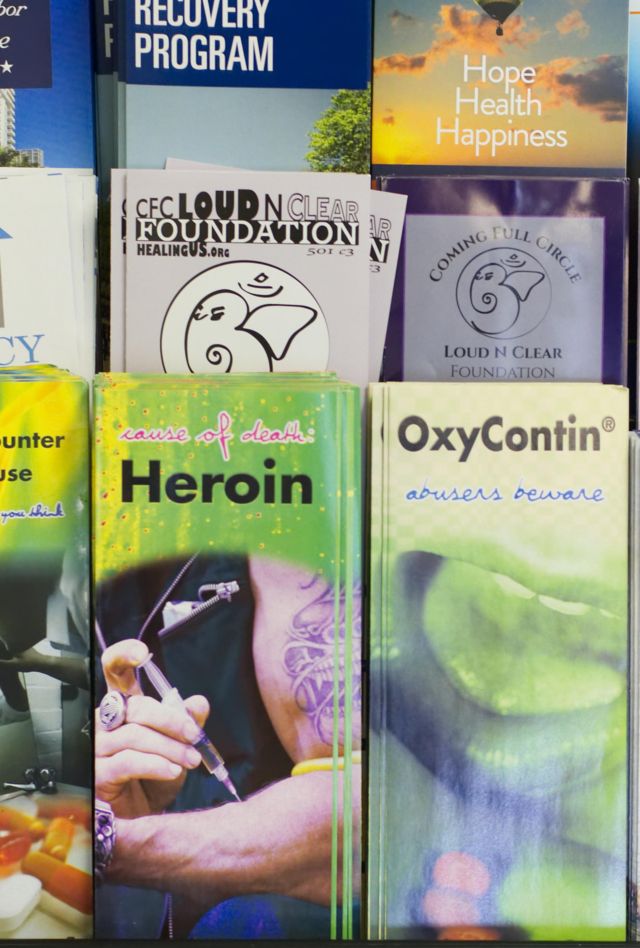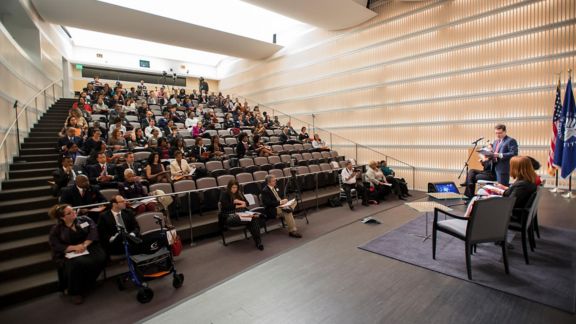Support for the Justice Community Opioid Innovation Network

Problem
A strong evidence and research base is needed to help stem the continuing tide of opioid misuse and overdose.
Along with the project lead, the University of Chicago, Department of Medicine, NORC is co-leading the Survey Core of the National Institute of Drug Abuse, Methodology and Advanced Analytics Resource Center (MAARC) within the Justice Community Opioid Innovation Network (JCOIN).
JCOIN is part of NIH’s Helping to End Addiction Long-term (HEAL), an integrated set of research initiatives designed to bring science to address the opioid crisis. One part of HEAL is to optimize treatment effects for individuals involved in the justice system. Within this focus, JCOIN ensures that every justice-involved individual with a substance use disorder should have access to effective treatment.
JCOIN’s goals include
- Generate new evidence about what works and how to implement effective treatment.
- Become a trusted resource for researchers and practitioners.
- Develop a network of researchers collaborating with practitioners across justice and community-based service settings.
- Build capacity to conduct research in justice settings.
- Facilitate translation of research to practice.
Solution
NORC and UC are providing critical timely information to JCOIN.
As part of the MAARC, NORC provides analytic and data support for the JCOIN network. NORC is surveying the public, jail administrators, and JCOIN members. NORC has conducted 11 nationally representative surveys (samples ranging from 1,000- 6,500 general population residents), with plans to do more, assessing public stigma towards OUD, knowledge, and attitudes about treatment, racism, experiences of opioid misuse or criminal justice involvement, measures of COVID-19, and measures to assess where individuals get their health information.
NORC has also conducted a multi-mode survey to assess the availability of MAT for OUD in jails. NORC also conducts surveys of the JCOIN community, comprising approximately 300 researchers, staff, and criminal justice and treatment partners to assess network collaborations and their impact on advancing OUD research. Additionally, NORC developed a set of core measures for use across the research hubs to collect information on the behaviors and experiences of individuals who are justice-involved and have a history of OUD.
Result
To-date, NORC’s contributions to science include peer-reviewed results on OUD stigma, support for OUD policies, vaccine hesitancy, mental health and COVID-19 related topics.
NORC’s work as part of this project has identified a comprehensive range of critical insights from numerous manuscripts covering various aspects of public health and societal attitudes. These studies span topics such as opioid use disorder (OUD) stigma and discrimination among young adults, adults, and healthcare workers in the United States. They shed light on the complex dynamics of stigma towards OUD, its implications on policy attitudes, and support for evidence-informed opioid policies. Additionally, the research delves into COVID-19-related issues, including vaccine hesitancy among healthcare workers, misinformation endorsement, and the relationship between substance use stigma and vaccine hesitancy. Furthermore, the studies explore gender identity, stimulant drug use, and internalized stigma among adults who misuse opioids, as well as the role of partisan media consumption in shaping attitudes towards opioid use disorder and policy support.
These manuscripts collectively contribute to a deeper understanding of critical public health challenges and inform evidence-based interventions and policies in these areas for policymakers, researchers, and the broader community.
Related Tags
Project Leads
-
Phoebe Lamuda
Senior Research DirectorProject Director -
Bruce Taylor
Senior FellowPrincipal Investigator









